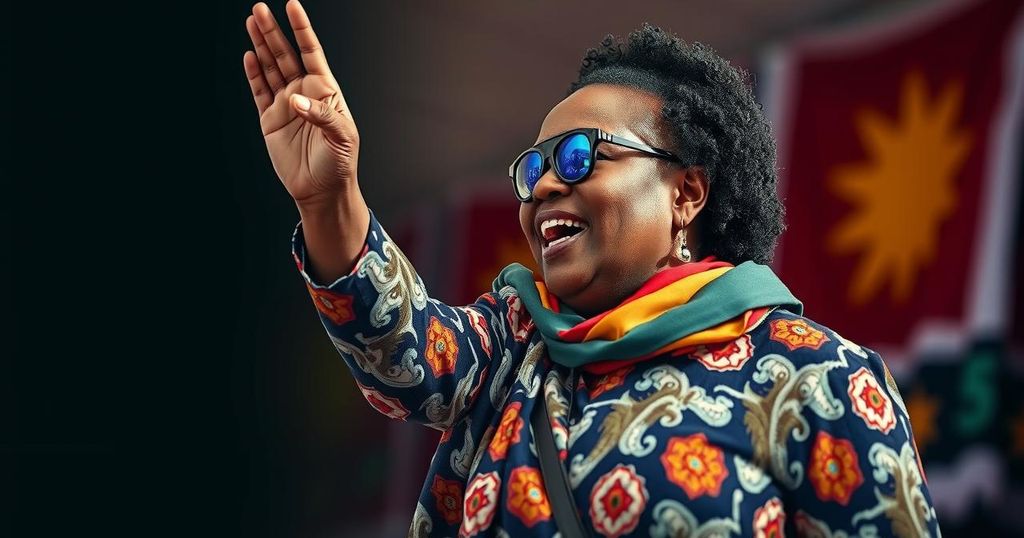Namibia Elects First Female President: A Historic Shift Amid Electoral Challenges

Namibia has elected its first female president, Netumbo Nandi-Ndaitwah, who won 57% of the vote in the recent election. SWAPO party retains power despite opposition allegations of electoral misconduct. Nandi-Ndaitwah, a prominent figure in Namibia’s independence movement, faces challenges from opposition parties that plan to contest the election results in court amidst existing concerns over the electoral process.
Namibia has made history by electing its first female president, Vice President Netumbo Nandi-Ndaitwah, who was declared the winner of last week’s presidential election under the ruling SWAPO party. Nandi-Ndaitwah, age 72, secured victory with 57% of the votes, surpassing expectations that suggested a potential runoff may be necessary. The election allowed SWAPO to maintain its dominance in the political landscape after 34 years since gaining independence from apartheid South Africa in 1990.
Despite the victory, opposition parties have raised concerns over the electoral process, citing numerous technical difficulties experienced during the voting, including insufficient ballot papers, which led to an extension of the voting period. They have expressed intentions to contest the election results in court, deeming the extension unconstitutional. Meanwhile, SWAPO also successfully upheld its majority in parliament, contrasting with developments in neighboring South Africa and Botswana where long-standing parties lost their majorities.
Vice President Nandi-Ndaitwah has a significant history as a member of the independence movement in the 1970s and became vice president in February following the death of President Hage Geingob. Her inauguration as Namibia’s fifth president after independence marks a pivotal moment in the nation’s journey towards gender inclusion in political leadership. The ruling SWAPO party proclaimed, “SWAPO Wins. Netumbo Wins. Namibia Wins. Now Hard Work,” emphasizing their victory’s significance.
However, the opposition parties, particularly the Independent Patriots for Change, which garnered 25% of the vote, have expressed their disapproval with the electoral commission’s handling of the election, alleging that many Namibians were disenfranchised due to the technical issues faced during the election. The country, known for its stability and democratic governance, now faces challenges in preserving its electoral integrity while moving forward under its new leadership.
As Namibia embarks on this new chapter with its inaugural female leader, the political landscape remains tense as opposition groups prepare to voice their grievances through legal channels, thereby setting the stage for potential confrontations regarding the legitimacy of the latest electoral outcome.
The recent presidential election in Namibia is significant not only for the political landscape but also for its historical shift towards gender representation in leadership roles. The SWAPO party, which has been in power since the country gained independence from South Africa in 1990, has maintained a significant hold over Namibian politics. The election of Vice President Nandi-Ndaitwah signals progress for female representation, while ongoing challenges concerning the electoral process and opposition dissent highlight the complexities within Namibia’s democracy. The backdrop of SWAPO’s continued dominance against a shifting regional sentiment offers a multifaceted view of the country’s political dynamics.
In summary, Namibia’s election of Vice President Netumbo Nandi-Ndaitwah as its first female president represents a historic advancement for gender representation in leadership roles within the country. However, the ongoing disputes regarding the legitimacy of the election results and the technical issues that plagued the voting process indicate that challenges remain for the newly elected administration. As Namibia continues to navigate these complex political waters, it is essential for the nation to uphold its democratic values and ensure electoral integrity.
Original Source: abcnews.go.com








